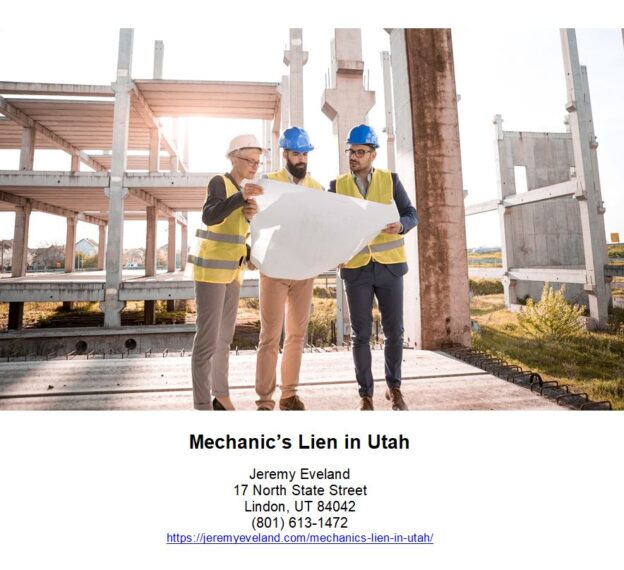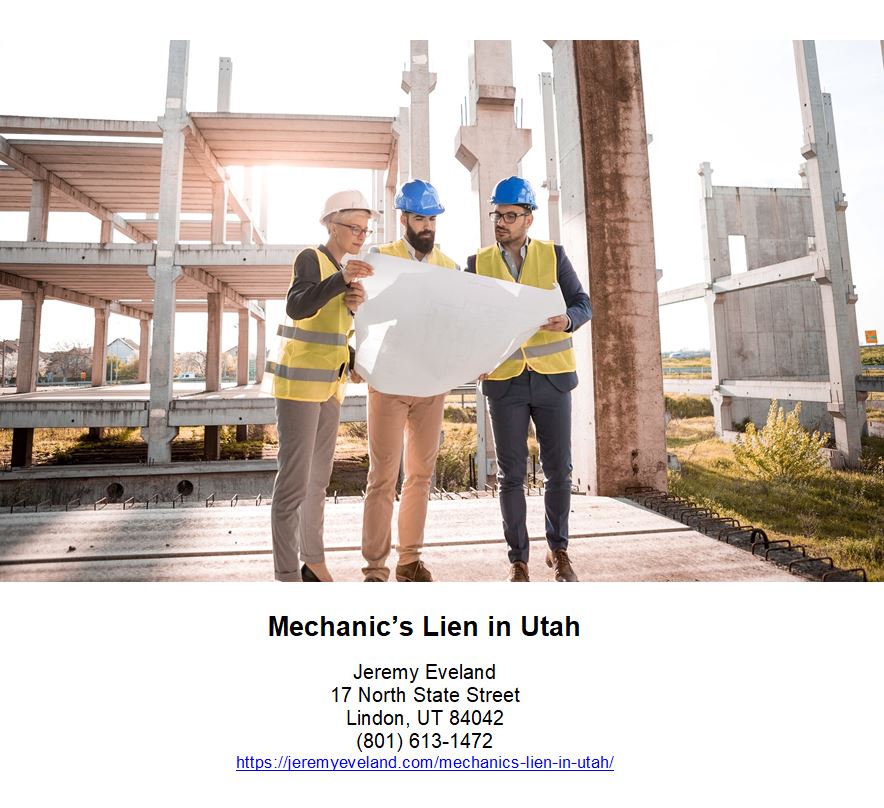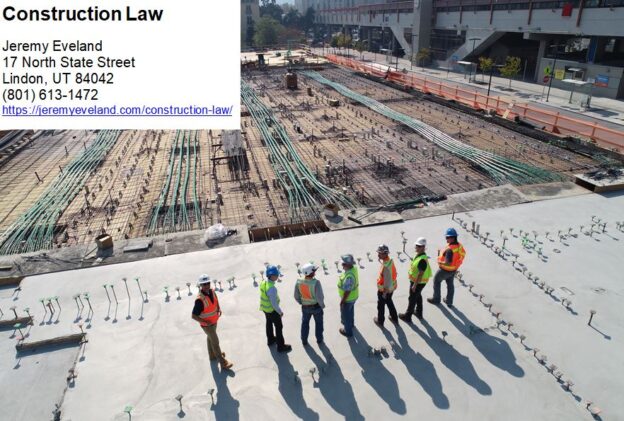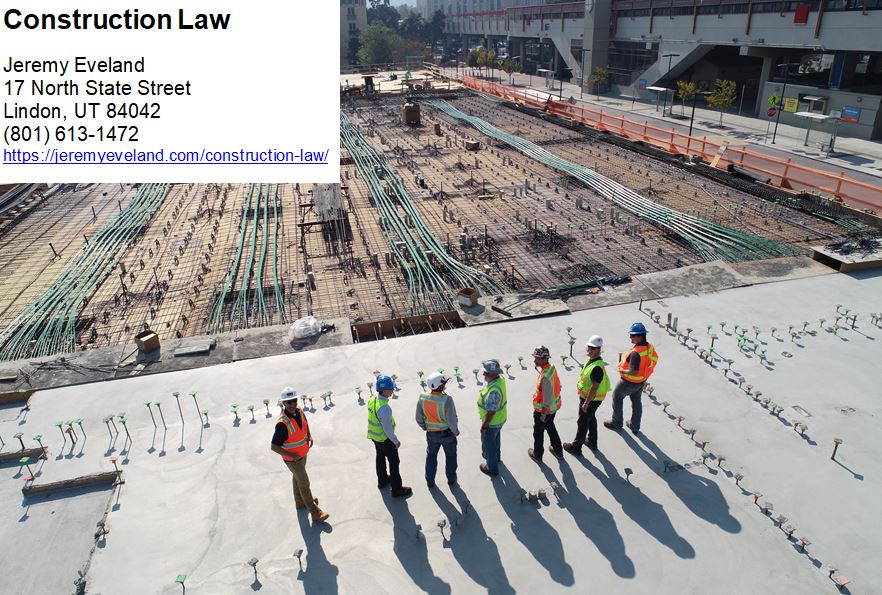Mechanic’s Lien in Utah
-
Utah Lien Topics
- Introduction
- Understanding the Rights of a Lien Claimant in Utah: What You Need to Know
- What is a Preconstruction Lien and How Does it Work in Utah?
- How to File a Mechanics Lien Claim in Utah
- What is a Preliminary Notice and When is it Required in Utah?
- Understanding the Mechanics of a Mechanics Lien in Utah
- Why You Need a Lien Lawyer to Help You in Utah
- Q&A
“Secure Your Payment with a Utah Mechanic’s Lien!”
Introduction
Mechanic’s Lien in Utah is a legal tool that allows contractors, subcontractors, and suppliers to secure payment for their work on a construction project. It is a powerful tool that can be used to ensure that contractors and suppliers are paid for their work on a construction project. In Utah, a Mechanic’s Lien is a lien on the property that is being improved by the contractor or supplier. This lien gives the contractor or supplier a legal right to the property until they are paid for their work. This article will provide an overview of Mechanic’s Lien in Utah, including the requirements for filing a lien, the process for filing a lien, and the consequences of not filing a lien.
Understanding the Rights of a Lien Claimant in Utah: What You Need to Know
When a creditor has a claim against a debtor, they may file a lien against the debtor’s property in Utah. A lien is a legal claim that gives the creditor the right to take possession of the debtor’s property if the debt is not paid. As a lien claimant in Utah, it is important to understand your rights and the process for filing a lien.
In Utah, a lien claimant must file a lien with the county recorder in the county where the debtor’s property is located. The lien must include the name of the debtor, the amount of the debt, and a description of the property that is subject to the lien. The lien must also be signed by the lien claimant or their authorized representative.
Once the lien is filed, the lien claimant has the right to take possession of the property if the debt is not paid. The lien claimant must give the debtor written notice of the lien and the amount of the debt. The lien claimant must also provide the debtor with a copy of the lien.
The lien claimant also has the right to foreclose on the property if the debt is not paid. The lien claimant must give the debtor written notice of the foreclosure and the amount of the debt. The lien claimant must also provide the debtor with a copy of the foreclosure notice.
In Utah, a lien claimant has the right to receive payment for the debt from the proceeds of the sale of the property. The lien claimant must also be paid any costs associated with the foreclosure, such as court costs and attorney’s fees.
It is important for lien claimants in Utah to understand their rights and the process for filing a lien. By understanding the process and knowing their rights, lien claimants can ensure that they are properly protected and that their rights are respected.
What is a Preconstruction Lien and How Does it Work in Utah?
A preconstruction lien is a legal tool used in the state of Utah to protect contractors, subcontractors, and suppliers from nonpayment on construction projects. It is a form of security that allows them to place a lien on the property being improved in order to secure payment for their services.
In Utah, a preconstruction lien must be filed before any work is done on the property. The lien must be filed with the county recorder’s office and must include the name of the contractor, subcontractor, or supplier, the name of the property owner, and the amount of the lien. Once the lien is filed, the contractor, subcontractor, or supplier is protected from nonpayment.
If the property owner fails to pay the contractor, subcontractor, or supplier, the lien can be enforced by filing a lawsuit in court. The court will then determine the amount of money owed and order the property owner to pay the contractor, subcontractor, or supplier. If the property owner fails to pay, the court can order the property to be sold in order to satisfy the lien.
Preconstruction liens are an important tool for contractors, subcontractors, and suppliers in Utah. They provide a way to secure payment for their services and protect them from nonpayment.
How to File a Mechanics Lien Claim in Utah
A mechanics lien is a legal tool that allows contractors, subcontractors, and suppliers to secure payment for services rendered on a construction project. In Utah, a mechanics lien can be filed against a property owner if they fail to pay for services rendered.
Filing a mechanics lien in Utah requires the lien claimant to follow a specific set of steps. The following is a guide to filing a mechanics lien in Utah.
Step 1: Determine Eligibility
In order to file a mechanics lien in Utah, the lien claimant must meet certain eligibility requirements. The lien claimant must be a contractor, subcontractor, or supplier who has provided labor or materials to a construction project. The lien claimant must also have a valid contract with the property owner or general contractor.
Step 2: Calculate the Amount of the Lien
The lien claimant must calculate the amount of the lien. This amount should include the cost of labor and materials provided, as well as any interest or other fees that may be due.
Step 3: Prepare the Lien
The lien claimant must prepare the lien document. This document should include the name and address of the lien claimant, the name and address of the property owner, the amount of the lien, and a description of the services provided.
Step 4: File the Lien
The lien claimant must file the lien with the county recorder in the county where the property is located. The lien must be filed within 90 days of the completion of the project.
Step 5: Serve the Lien
The lien claimant must serve the lien on the property owner. This can be done by certified mail, personal service, or publication.
Step 6: Foreclose on the Lien
If the lien claimant is not paid, they may foreclose on the lien. This requires the lien claimant to file a lawsuit in court. If the court finds in favor of the lien claimant, the property may be sold to satisfy the lien.
By following these steps, a lien claimant in Utah can file a mechanics lien and secure payment for services rendered on a construction project.
What is a Preliminary Notice and When is it Required in Utah?
A Preliminary Notice is a document that is required to be sent to the owner of a construction project in Utah prior to the commencement of work. This notice is intended to inform the owner of the contractor’s right to file a lien against the property if payment is not received for the work performed. The Preliminary Notice must be sent within 20 days of the contractor’s first furnishing of labor or materials to the project. It must include the name and address of the contractor, the name and address of the owner, a description of the work to be performed, and the name of the person who contracted with the contractor. Failure to provide a Preliminary Notice may result in the contractor’s inability to file a lien against the property.
Understanding the Mechanics of a Mechanics Lien in Utah
A mechanics lien in Utah is a legal tool that allows contractors, subcontractors, and suppliers to secure payment for services rendered or materials supplied in the construction of a property. It is a powerful tool that can be used to ensure that those who have provided labor or materials to a construction project are paid for their services.
In Utah, a mechanics lien is created when a contractor, subcontractor, or supplier provides labor or materials to a construction project and is not paid for their services. The lien is placed on the property itself, and it gives the lienholder the right to foreclose on the property if the debt is not paid.
In order to file a mechanics lien in Utah, the lienholder must first provide written notice to the property owner. This notice must include the name of the lienholder, the amount of the debt, and the date the debt was incurred. The notice must also be served on the property owner within 90 days of the date the debt was incurred.
Once the notice has been served, the lienholder must then file a lien with the county recorder’s office. The lien must include the same information as the notice, as well as a description of the property and the amount of the debt. The lien must also be filed within 180 days of the date the debt was incurred.
Once the lien has been filed, the lienholder has the right to foreclose on the property if the debt is not paid. The lienholder must first file a lawsuit in order to foreclose on the property. The lawsuit must include the same information as the lien, as well as a description of the property and the amount of the debt. The lawsuit must also be filed within one year of the date the debt was incurred.
If the lienholder is successful in the lawsuit, the court will issue a judgment in favor of the lienholder. The judgment will allow the lienholder to foreclose on the property and collect the debt.
Understanding the mechanics of a mechanics lien in Utah is important for contractors, subcontractors, and suppliers who are providing labor or materials to a construction project. It is a powerful tool that can be used to ensure that those who have provided labor or materials to a construction project are paid for their services.
Why You Need a Lien Lawyer to Help You in Utah
If you are a business owner in Utah, you may need to consider hiring a lien lawyer to help you protect your rights and interests. A lien is a legal claim against a property that is used to secure payment of a debt. Liens can be placed on real estate, personal property, or other assets.
In Utah, lien laws are complex and can be difficult to understand. A lien lawyer can help you navigate the legal process and ensure that your rights are protected. A lien lawyer can help you understand the different types of liens, the process for filing a lien, and the legal requirements for enforcing a lien.
A lien lawyer can also help you understand the different types of liens that can be placed on a property. For example, a mechanic’s lien is a lien that is placed on a property to secure payment for repairs or improvements that have been made to the property. A lien lawyer can help you understand the requirements for filing a mechanic’s lien and the process for enforcing it.
A lien lawyer can also help you understand the legal requirements for filing a lien in Utah. For example, a lien must be filed within a certain period of time after the debt is incurred. A lien lawyer can help you understand the deadlines for filing a lien and the process for enforcing it.
Additionally, a lien lawyer can help you understand the legal requirements for releasing a lien. In Utah, a lien can be released if the debt is paid in full or if the lien is no longer necessary. A lien lawyer can help you understand the process for releasing a lien and the legal requirements for doing so.
Finally, a lien lawyer can help you understand the complex lien laws in Utah and ensure that your rights are protected. If you are a business owner in Utah, it is important to consider hiring a lien lawyer to help you navigate the legal process and protect your rights.
Q&A
Q: What is a Mechanic’s Lien in Utah?
A: A Mechanic’s Lien in Utah is a legal claim that a contractor, subcontractor, or supplier can file against a property owner if they are not paid for the work they have done on the property. The lien gives the contractor, subcontractor, or supplier a legal right to the property until they are paid for their services. See e.g. Black’s Law Dictionary page 935 (7th ed. 1999).
Q: How do I file a Mechanic’s Lien in Utah?
A: To file a Mechanic’s Lien in Utah, you must first provide the property owner with a Notice of Intent to Lien. This notice must be sent to the property owner at least 30 days before filing the lien. After the notice is sent, you must then file the lien with the county recorder’s office in the county where the property is located.
Q: What information is required to file a Mechanic’s Lien in Utah?
A: To file a Mechanic’s Lien in Utah, you must provide the following information: the name and address of the property owner, the name and address of the contractor, subcontractor, or supplier, the date of the contract, the amount owed, and a description of the work performed.
Q: How long does a Mechanic’s Lien in Utah last?
A: A Mechanic’s Lien in Utah lasts for one year from the date it is filed. After one year, the lien expires and must be renewed if the contractor, subcontractor, or supplier still has not been paid.
Q: What happens if the property owner does not pay the debt?
A: If the property owner does not pay the debt, the contractor, subcontractor, or supplier can take legal action to foreclose on the property. This means that the property can be sold to pay off the debt.
Q: Can a Mechanic’s Lien in Utah be removed?
A: Yes, a Mechanic’s Lien in Utah can be removed if the debt is paid in full or if the parties reach an agreement to settle the debt. The lien must be released by the county recorder’s office in order for it to be removed.
Mechanic’s Lien in Utah Consultation
When you need legal help with a Mechanic’s Lien in Utah, call Jeremy D. Eveland, MBA, JD (801) 613-1472 for a consultation.
Jeremy Eveland
17 North State Street
Lindon UT 84042
(801) 613-1472
Related Posts
Salt Lake City Business Transaction Attorney
Business Succession Lawyer Herriman Utah
What Are The Advantages Of Hiring A Business Lawyer?
Business Succession Lawyer Logan Utah
What Is The Relationship Between Business Law And Economies?
Business Transaction Lawyer West Valley City Utah
Do I Need A Permit To Start A Business In Utah?
Business Succession Lawyer Draper Utah
Business Contract Lawyer Salt Lake City
What Is The Difference Between Corporate And Commercial Law?



